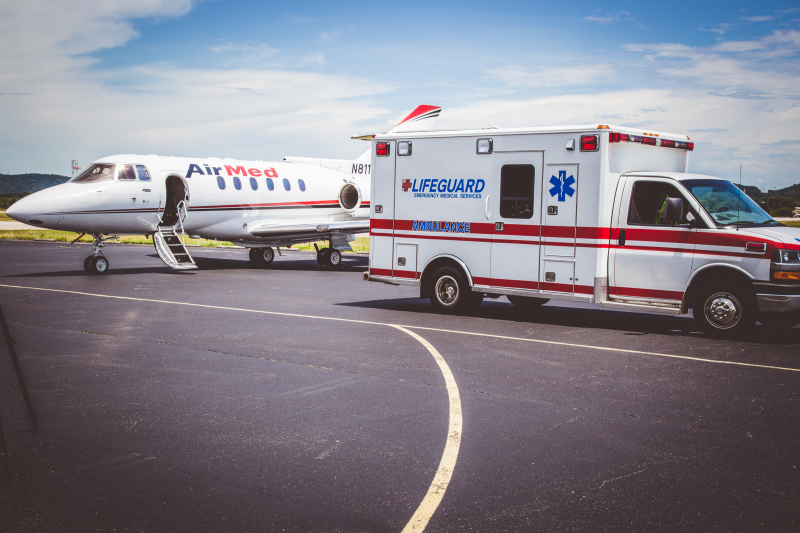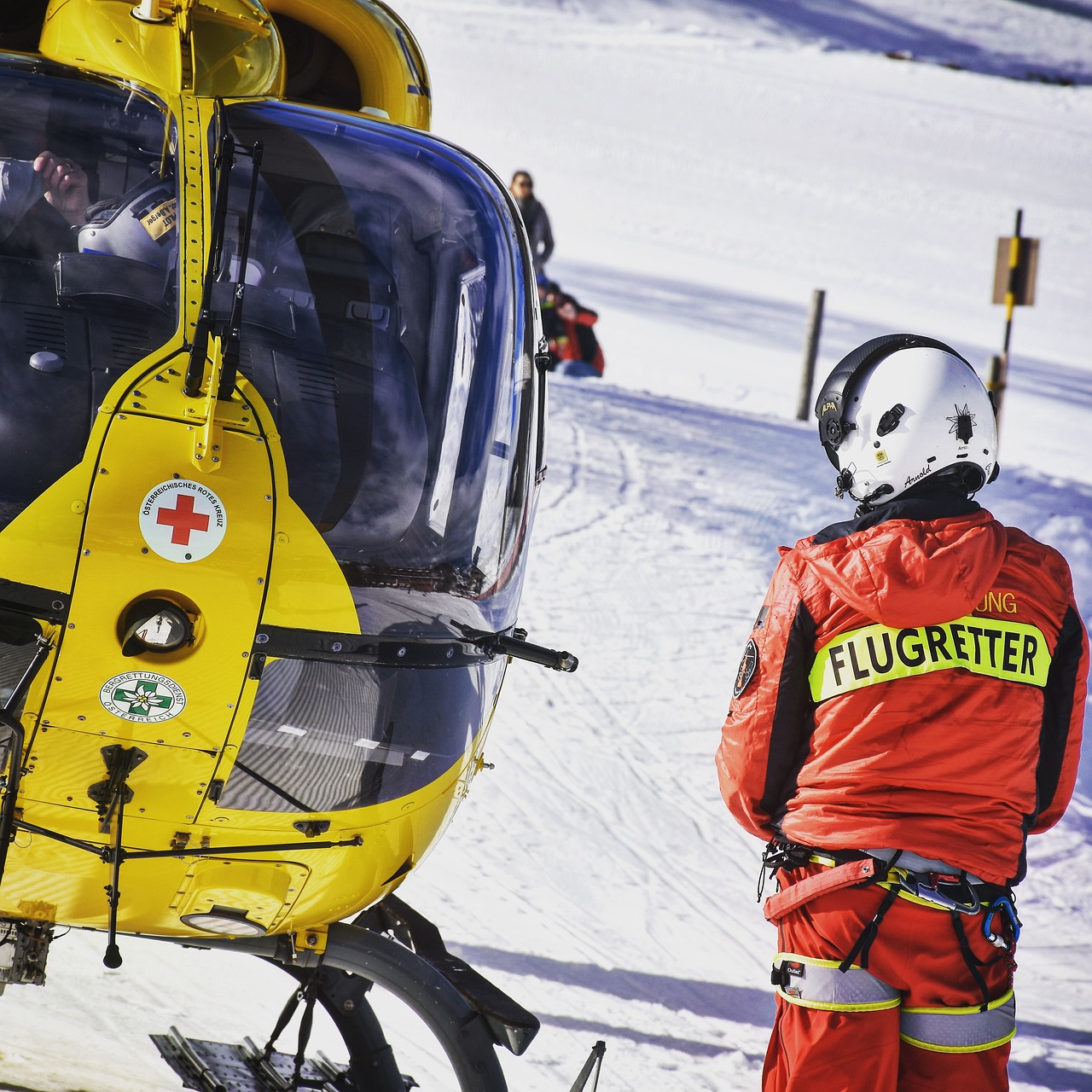Alright, so let’s talk about continuing education for air ambulance professionals. Now, these are the folks who do an amazing job of providing critical medical care while transporting patients in the air. But here’s the thing: just like in any field, it’s important for these professionals to keep up with the latest advancements and techniques. This ensures that they’re always using the best practices and delivering top-notch care to those in need. So, in this blog post, we’re going to explore the importance of continuing education for air ambulance professionals and why it’s crucial for them to stay updated in this fast-paced industry. Get ready to learn something new!
Benefits of Continuing Education
Continuing education is essential for air ambulance professionals to enhance their knowledge and skills, stay updated with advancements in technology, and improve patient care and safety. By investing time and effort into ongoing learning, you can ensure that you are providing the best possible care to your patients and staying up-to-date with the latest practices in the field.
Enhancing Knowledge and Skills
Continuing education programs allow air ambulance professionals to expand their knowledge base and acquire new skills. These programs offer opportunities to learn about the latest research, treatment protocols, and best practices in the field. Whether it’s through formal education programs, professional conferences, or online courses, continuing education provides a platform to deepen your understanding and enhance your skills, ultimately benefiting both you and your patients.
Staying Updated with Advancements in Technology
Advancements in technology are revolutionizing the field of air ambulance services. From advanced medical equipment to telemedicine and remote patient monitoring, staying updated with these advancements is crucial for providing the best care possible. Continuing education programs offer insights into the latest technological innovations and equip you with the knowledge and skills to effectively utilize these advancements in your practice. By keeping up with advancements in technology, you can enhance patient outcomes and improve overall efficiency in your air ambulance operations.
Improving Patient Care and Safety
Continuing education plays a vital role in improving patient care and safety. By expanding your knowledge and acquiring new skills, you can deliver more effective and evidence-based care to your patients. Continuing education programs also focus on risk management and safety practices, ensuring that you are equipped with the necessary skills to respond to emergencies, make critical decisions, and prioritize patient and crew safety. By continuously updating your skills and knowledge, you can provide the highest level of care and ensure the well-being of your patients.
Types of Continuing Education
Continuing education for air ambulance professionals can take various forms, including formal education programs, professional conferences and workshops, and online and distance learning courses. Each of these types of continuing education offers unique benefits and opportunities for professional growth.
Formal Education Programs
Formal education programs, such as degree programs in aviation medicine or certification programs in critical care transport, provide a structured and comprehensive approach to continuing education. These programs offer in-depth knowledge and specialized training in specific areas of air ambulance operations. They are often designed for individuals looking to advance their careers or gain expertise in a specific domain. Formal education programs provide a solid foundation for professional growth and can open up new opportunities in the field.
Professional Conferences and Workshops
Professional conferences and workshops offer a platform for air ambulance professionals to connect, learn, and share best practices. These events bring together experts from various fields, creating opportunities for networking, collaboration, and knowledge exchange. Professional conferences often feature keynote speakers, panel discussions, and breakout sessions that cover a wide range of topics related to air ambulance operations. Attending these conferences and workshops allows you to stay updated with industry trends, gain insights from experienced professionals, and bring back innovative ideas to implement in your practice.
Online and Distance Learning Courses
Online and distance learning courses provide flexibility and convenience for air ambulance professionals who may have limited time for traditional classroom-based learning. These courses are accessible from anywhere, allowing you to learn at your own pace without the need for travel or dedicating specific time slots. Online courses cover a wide range of topics, ranging from flight physiology and aeromedical training to risk management and patient advocacy. Interactive learning platforms often include quizzes, discussions, and case studies, promoting active participation and knowledge retention.
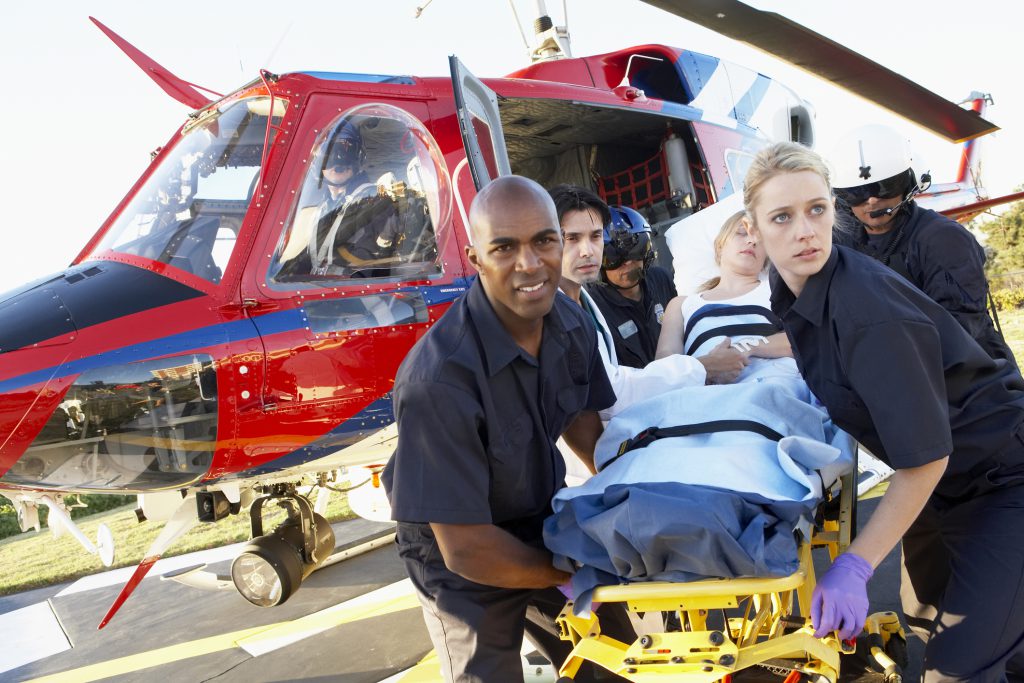
Formal Education Programs
Formal education programs offer specialized training and advanced education for air ambulance professionals. These programs provide in-depth knowledge and focused training in specific areas.
Degree Programs in Aviation Medicine
Degree programs in aviation medicine are designed to equip air ambulance professionals with the knowledge and skills necessary to understand the physiological and medical aspects of flight. These programs offer comprehensive training in topics such as aerodynamics, cabin pressurization, and flight physiology. By completing a degree program in aviation medicine, you can gain a deep understanding of the unique challenges and considerations in providing medical care in a flight environment.
Certification Programs in Critical Care Transport
Certification programs in critical care transport are designed for air ambulance professionals who specialize in transporting critically ill or injured patients. These programs focus on advanced life support techniques, patient stabilization, and the safe and effective transfer of patients in a variety of settings. Certification programs in critical care transport often include both theoretical and practical components, allowing professionals to develop the necessary skills and knowledge to provide optimal care during the transport of critically ill patients.
Specialized Courses in Air Ambulance Operations
Specialized courses in air ambulance operations offer targeted training in specific areas of air medical services. These courses may cover topics such as aviation safety, crew resource management, and advanced airway management. By enrolling in specialized courses, air ambulance professionals can enhance their skills and knowledge in specific domains, ensuring they are well-equipped to handle the unique challenges that arise during air ambulance operations.
Professional Conferences and Workshops
Attending professional conferences and workshops is a valuable way for air ambulance professionals to stay updated with industry trends, gain insights from experienced professionals, and share best practices. These events offer numerous benefits and opportunities for professional growth.
Importance of Networking
One of the key benefits of attending professional conferences and workshops is the opportunity to network with other professionals in the field. Networking allows you to connect with like-minded individuals, share experiences, and build relationships that can lead to future collaborations or career opportunities. By engaging with peers, experts, and leaders in the industry, you can expand your professional network and gain valuable insights and support.
Sharing Best Practices
Professional conferences and workshops provide a platform for air ambulance professionals to share their experiences and best practices. Through presentations, panel discussions, and interactive sessions, professionals can showcase their innovative approaches and success stories. Sharing best practices not only contributes to the learning and growth of fellow professionals but also promotes continuous improvement within the industry as a whole.
Industry Trends and Innovations
Attending professional conferences and workshops allows air ambulance professionals to stay updated with the latest industry trends and innovations. Keynote speakers and industry experts often present emerging technologies, research findings, and future directions in air ambulance operations. By keeping abreast of industry trends, you can stay ahead of the curve, adapt to changes, and implement new strategies to enhance patient care and improve operational efficiency.
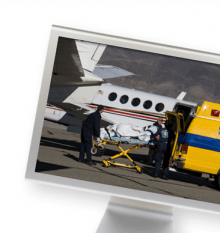
Online and Distance Learning Courses
Online and distance learning courses offer flexibility and convenience for air ambulance professionals who may have busy schedules or limited access to traditional educational opportunities. These courses provide a wide range of topics and interactive learning platforms.
Flexibility and Convenience
One of the main advantages of online and distance learning courses is the flexibility they offer. You can access course materials and complete assignments at your own pace, allowing you to balance your professional and personal commitments. Online courses eliminate the need for travel and accommodation, making it easier for professionals from different geographical locations to access quality education.
Wide Range of Topics
Online and distance learning courses cover a wide range of topics relevant to air ambulance professionals. Whether you want to expand your knowledge in flight physiology, enhance your skills in critical care transport, or learn about the latest advancements in telemedicine, there are courses available to suit your interests and professional goals. The breadth of topics covered ensures that you can find courses that align with your specific areas of interest and expertise.
Interactive Learning Platforms
Many online and distance learning platforms provide interactive learning experiences, ensuring active engagement and knowledge retention. These platforms may include virtual classrooms, discussion forums, and quizzes that encourage interaction and participation. By actively engaging in the learning process, you can enhance your understanding of the topics, collaborate with fellow learners, and apply the knowledge and skills gained to real-life scenarios.
Maintaining Certifications
Maintaining certifications is crucial for air ambulance professionals to ensure continued competence and adherence to industry standards. By renewing certifications and participating in continuing competency programs, professionals can demonstrate their commitment to ongoing learning and maintaining high standards of practice.
Importance of Certification
Certifications in air ambulance services validate your knowledge and expertise in the field and provide reassurance to patients, employers, and regulatory bodies. Certifications demonstrate that you have met the required standards and successfully completed the necessary training and examinations. By obtaining and maintaining certifications, you showcase your dedication to professionalism, patient care, and safety.
Requirements for Certification Renewal
Each certification has specific requirements for renewal, which may include completion of continuing education credits, participation in professional activities, and demonstration of continued competency. Air ambulance professionals should familiarize themselves with the renewal requirements of their specific certifications to ensure they remain in good standing. By fulfilling these requirements, professionals can ensure they stay up-to-date with the latest practices and maintain their certifications.
Continuing Competency Programs
Continuing competency programs provide opportunities for air ambulance professionals to continuously improve and demonstrate their ongoing competence. These programs often involve a combination of continuing education, professional development activities, and performance evaluations. By participating in continuing competency programs, professionals can keep their knowledge and skills current, ensuring they are well-equipped to provide safe and effective care.
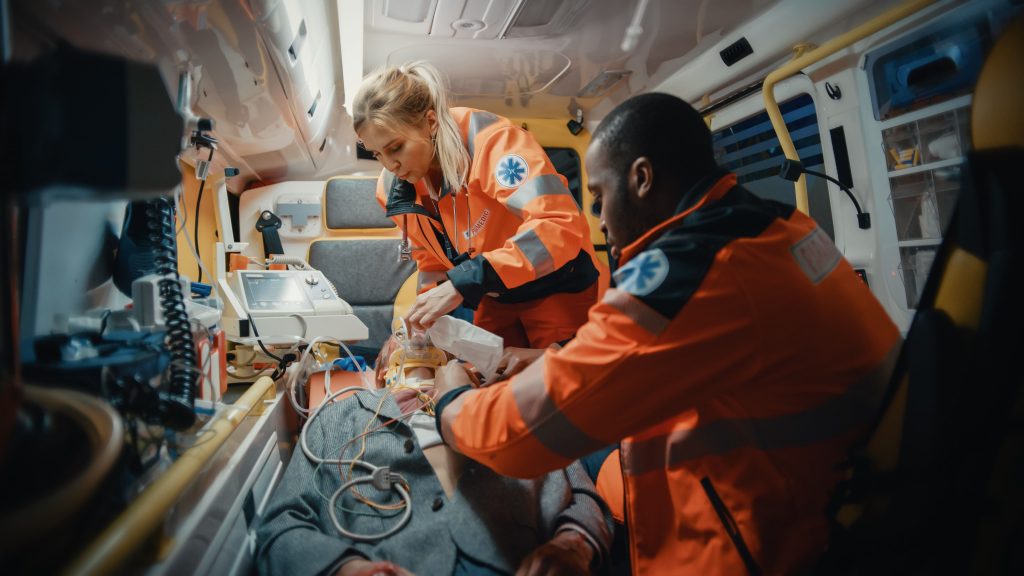
Skills Development
Continuing education programs offer opportunities for air ambulance professionals to develop and enhance their skills in specific areas relevant to their practice. Skills development programs focus on practical and hands-on training, allowing professionals to acquire advanced knowledge and proficiency in specialized techniques.
Flight Physiology and Aeromedical Training
Flight physiology and aeromedical training programs focus on understanding the physiological effects of flight and the medical considerations involved in air transportation. These programs cover topics such as altitude physiology, hypoxia, and decompression sickness. By acquiring in-depth knowledge of flight physiology, air ambulance professionals can better understand the unique challenges of providing medical care in a flight environment and make informed decisions to ensure patient safety.
Airway Management and Advanced Life Support
Air ambulance professionals require advanced skills in airway management and advanced life support techniques to provide optimal care during critical care transport. Skills development programs in airway management train professionals in advanced airway techniques, equipment utilization, and troubleshooting. Advanced life support training focuses on resuscitation techniques, pharmacology, and the management of critically ill patients. By honing their skills in airway management and advanced life support, air ambulance professionals can confidently handle emergency situations and ensure the best possible outcomes for their patients.
Critical Care Skills Training
Critical care skills training programs provide air ambulance professionals with specialized training in handling critically ill or injured patients. These programs focus on procedures such as invasive monitoring, advanced cardiac life support, and trauma management. By developing advanced critical care skills, professionals can provide specialized care to the most critically ill patients, effectively manage complex medical conditions, and optimize patient outcomes.
Risk Management and Safety Practices
Risk management and safety practices are of utmost importance in air ambulance operations. Continuing education programs offer specialized training in emergency response, crisis management, and patient and crew safety protocols to ensure the highest level of safety for all involved.
Emergency Response Training
Emergency response training programs focus on equipping air ambulance professionals with the skills and knowledge to effectively respond to emergencies during transport. These programs cover topics such as disaster management, mass casualty incidents, and emergency procedures. By training in emergency response, professionals can ensure they are prepared to handle unexpected situations and provide timely and appropriate care to their patients.
Crisis Management and Decision Making
Crisis management and decision making skills are crucial for air ambulance professionals to effectively handle high-stress situations. Continuing education programs in crisis management emphasize the development of leadership, communication, and decision-making skills. By honing these skills, professionals can navigate complex scenarios, make critical decisions, and mitigate risks, ensuring the safety of their patients and crew.
Patient and Crew Safety Protocols
Patient and crew safety are paramount in air ambulance operations. Continuing education programs offer training in safety protocols, including infection control, equipment safety, and hazard identification. By adhering to safety protocols and staying updated with best practices, professionals can minimize risks, prevent accidents, and foster a culture of safety within their organization.

Cultural Competency and Patient Advocacy
Understanding and embracing diversity is essential in providing patient-centered care. Continuing education programs focus on cultural competency and patient advocacy to ensure that air ambulance professionals can effectively communicate with and care for patients from diverse cultural backgrounds.
Understanding Diversity and Cultural Sensitivity
Continuing education programs in cultural competency aim to enhance professionals’ understanding of diverse cultural backgrounds and promote sensitivity and respect in their interactions with patients. These programs cover topics such as cultural norms, beliefs, and practices, helping professionals navigate cross-cultural encounters and provide culturally appropriate care.
Effective Communication
Effective communication is a fundamental aspect of patient care. Continuing education programs provide training in communication techniques, including active listening, non-verbal communication, and the use of interpreters. By improving communication skills, air ambulance professionals can establish trust, reduce misunderstandings, and ensure accurate information exchange with their patients and their families.
Patient Rights and Ethical Considerations
Continuing education programs in patient advocacy focus on ensuring that professionals are well-versed in patient rights and ethical considerations. These programs cover topics such as informed consent, confidentiality, and end-of-life care. By understanding and upholding patient rights and ethical principles, air ambulance professionals can advocate for their patients’ best interests and provide compassionate and ethical care.
Medical and Technological Advancements
The field of air ambulance services is constantly evolving, with new treatment protocols, procedures, and innovative medical equipment and devices emerging. Continuing education programs provide opportunities for air ambulance professionals to stay updated with these advancements and incorporate them into their practice.
New Treatment Protocols and Procedures
Continuing education programs offer insights into the latest treatment protocols and procedures, ensuring that professionals are equipped with the knowledge and skills to deliver evidence-based care. These programs cover topics such as cardiac care, trauma management, and medical interventions specific to various patient populations. By staying updated with new treatment protocols, air ambulance professionals can provide the most current and effective care to their patients.
Innovative Medical Equipment and Devices
Advancements in medical equipment and devices have significantly impacted air ambulance operations. Continuing education programs showcase the latest innovations in medical technology, such as portable ultrasound devices, advanced monitoring systems, and point-of-care testing equipment. By gaining knowledge on the use and integration of innovative medical equipment and devices, professionals can enhance their practice, optimize patient care, and improve efficiency in their operations.
Telemedicine and Remote Patient Monitoring
Telemedicine and remote patient monitoring are transforming the way healthcare is delivered, especially in the air ambulance setting. Continuing education programs in telemedicine and remote patient monitoring provide professionals with the skills and knowledge to utilize these technologies effectively. These programs cover topics such as teleconsultation, teletriage, and telemonitoring, enabling professionals to provide remote care, coordinate with medical teams on the ground, and ensure seamless communication during transport.
In conclusion, continuing education plays a critical role in the professional growth and development of air ambulance professionals. By engaging in ongoing learning and staying up-to-date with advancements in the field, professionals can enhance their knowledge and skills, improve patient care and safety, and stay at the forefront of the industry. Whether through formal education programs, professional conferences, or online courses, continuing education provides opportunities for professionals to continuously improve and remain competent in their practice. By investing in your education and professional development, you can contribute to the advancement of air ambulance services and ultimately make a positive impact on patient outcomes.
